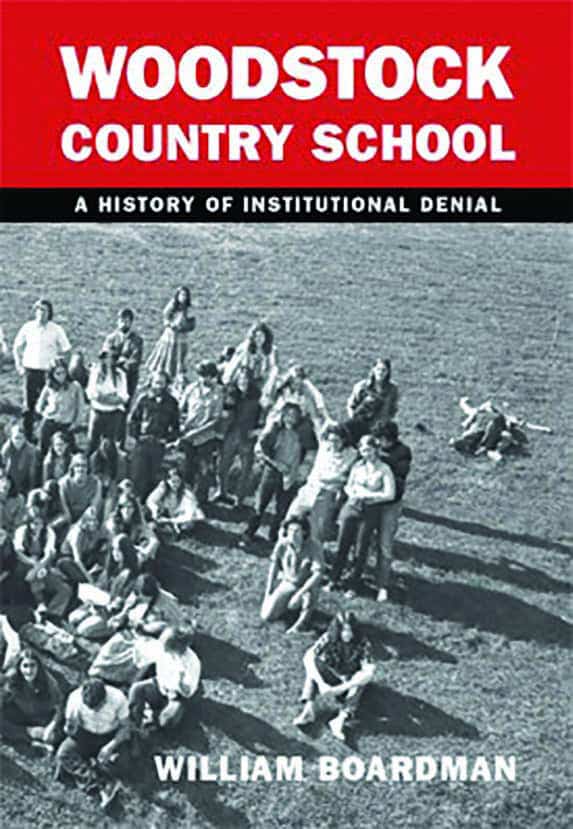WOODSTOCK— “Woodstock Country School, A History of Institutional Denial” by alumnus William Boardman tells the story of the Vermont school’s rise and flourishing, even as it relied on charismatic headmaster David Bailey, whose dominance shaped the institutional denial that proved too strong to allow the school to survive. Respected among educators for both its innovations and high standards, the Woodstock Country School (WCS) was cherished by those who taught and were taught there, even as it struggled and finally failed to survive its 35th year.
Now the story of this adventure is told in fascinating detail in William Boardman’s “Woodstock Country School, A History of Institutional Denial,” according to a May 25 news release. The 505-page volume brings to light the virtues and shortcomings of the remarkable people who created the school and then sealed its fate.
The WCS rose on the wave of American energy and idealism following World War II. During its first 20 years, it was an exciting, successful, esteemed experiment in American education.
Founded in 1945 and closed in 1980, WCS was a coed boarding school that during most of its history had fewer than 100 students in grades 9 through 12. In the mid-1960s the school introduced North America’s first-ever four-semester, 12-month academic year, now widely known as the Woodstock Plan. For its first decade, the school occupied an idyllic campus in Woodstock, Vt. After a fire destroyed the classroom building, the school purchased the sprawling former Upwey Farm in South Woodstock, where it resided for its final 25 years.
Boardman’s history reads like a novel, as dozens of characters struggle first to build the school, then to save it. Despite good intentions, their effort foundered on frailties, irresponsibilities, and a fatally imperfect understanding of what made the school so magical for so many.
“You could call it a Rorschach history,” said Boardman, who attended WCS from 1952 to 1956 and taught there from 1971 to 1976, “or maybe a history collage, since there are so many voices telling the story, each from his or her own perspective, yet there is a remarkable shared perspective of an essentially ineffable institution.”
Laurance Rockefeller was one of the early, reliable benefactors of this co-educational boarding school in Vermont, at a time when coed schools still seemed audacious.




